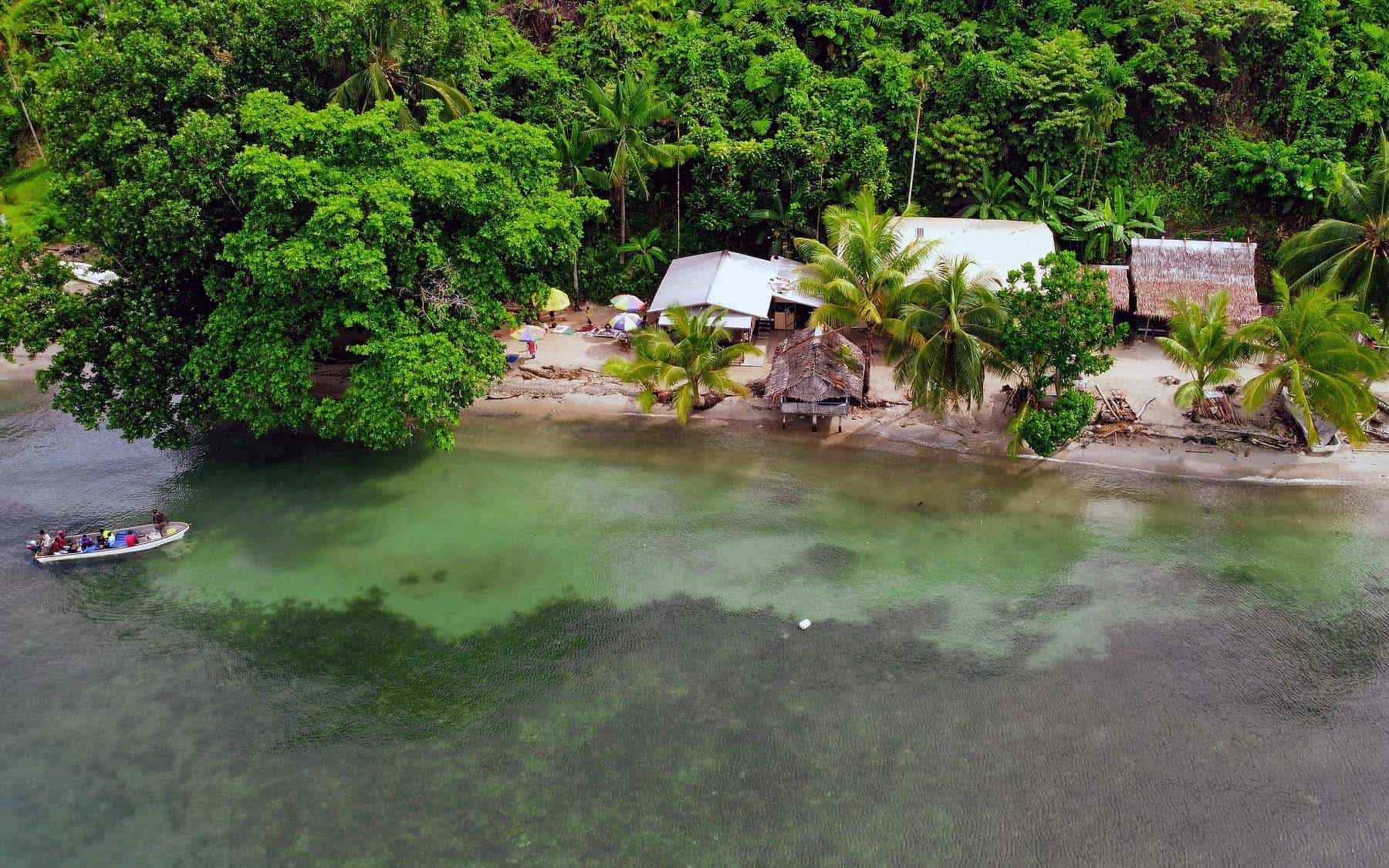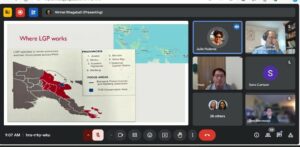
ME&A Highlights Sustainable Conservation Approaches in Papua New Guinea and Beyond
ME&A recently provided critical insights and actionable recommendations to support the sustainability of conservation efforts in Papua New Guinea (PNG) following a performance evaluation of USAID’s ambitious Lukautim Graun Program (LGP). Since 2019, the LGP, meaning “Look After the Environment,” has worked to protect Papua New Guinea’s rich biodiversity by enhancing customary land management across its diverse ecosystems through a participatory, localized approach.
The ME&A-led evaluation focused on the relevance, impact, and sustainability of LGP’s efforts, particularly around USAID’s gender mainstreaming, localization, and climate change priorities. To ensure the evaluation’s findings inform future USAID programming, ME&A conducted two webinars for USAID staff on Sept. 2 and Oct. 2, 2024. These sessions, held in collaboration with USAID/Philippines, USAID/Mongolia, and USAID/Pacific Islands, facilitated knowledge sharing among USAID headquarters and Missions in Southeast Asia and beyond. The webinars contributed to USAID/Pacific Islands’ learning agenda, focusing on identifying promising approaches, key issues, lessons learned, and innovative pathways to enhance future development interventions in the region.

The performance evaluation assessed the relevance and effectiveness of LGP’s objectives and approach with four primary objectives: documenting progress toward key results, evaluating the effectiveness of the program’s theory of change, assessing stakeholder engagement, and identifying lessons for future programming. It addressed five main questions:
- How did the governance of targeted national and provincial organizations result in better management effectiveness of conservation areas?
- How have the alliances formed, including those with the private sector, Indigenous people, and other non-traditional partners, effectively supported conservation activities and sustainable land-use management? How did community-based natural resource management institutions contribute to reducing biodiversity threats because of LGP implementation?
- What are the socioeconomic benefits to households related to LGP’s conservation activities and adoption of sustainable land-use management practices?
- How did LGP’s addressing of gender gaps and inclusivity issues support LGP to better achieve relevant outcomes?
- How effective has LGP been in establishing ownership of interventions introduced at the national, provincial, and community levels and how likely is it that the established ownership will be sustainable beyond the LGP implementation period?
Launched in July 2019 under a cooperative agreement with USAID, the program has received $29 million in funding, including $3 million from the Women’s Global Development and Prosperity Initiative and a recent $6 million two-year extension. LGP aims to help the PNG government and local communities manage high-biodiversity areas by strengthening governance, forming alliances, and empowering community-based natural resource management institutions. This includes robust gender mainstreaming initiatives in conservation and natural resource management. LGP’s theory of change emphasizes that strengthening institutional capacity, transparent decision-making, and local knowledge will ultimately reduce threats to PNG’s biodiversity.
The ME&A-led evaluation employed a mixed-methods approach, integrating both qualitative and quantitative data collection techniques to answer the evaluation questions. Qualitative data collection included 20 key informant interviews and 12 small group interviews with LGP stakeholders across PNG. Respondents included staff from the LGP consortium, government officials, program participants, and other partners. Quantitative data was drawn from sources such as household surveys of LGP-supported communities and a non-participating community; data on biologically significant areas under improved management from conservation deeds; LGP monitoring and evaluation data; and other secondary sources.
USAID awarded ME&A the LGP evaluation as a task order under the USAID Regional Development Mission for Asia (RDMA) Program Cycle Monitoring, Evaluation, and Learning (PCMEL) Support Activity. PCMEL is a five-year, multiple-award Indefinite Delivery Indefinite Quantity (IDIQ) supporting USAID/RDMA and its implementing partners and stakeholders in becoming more efficient, effective, and transparent in achieving and reporting results.


